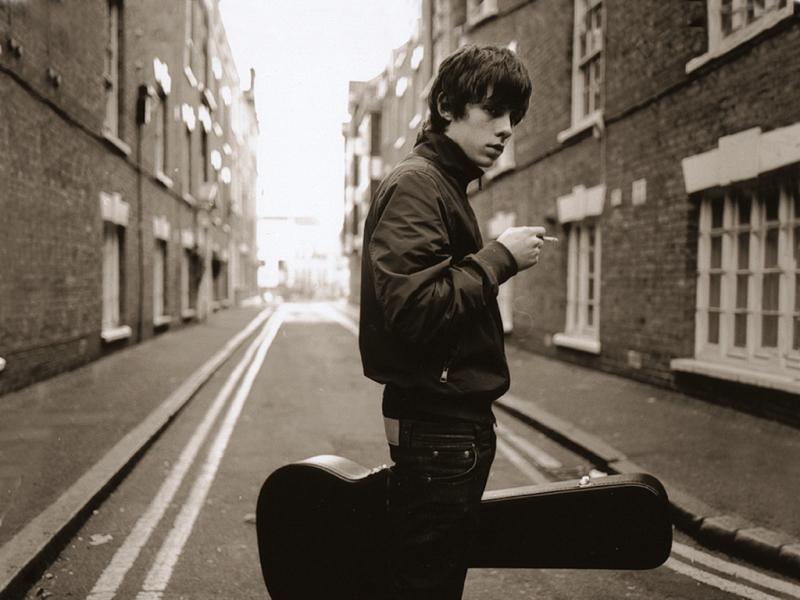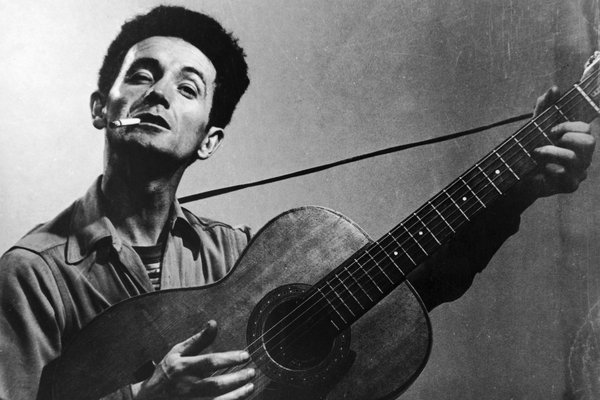Get Folked: The Great Folk Revival, More4 | reviews, news & interviews
Get Folked: The Great Folk Revival, More4
Get Folked: The Great Folk Revival, More4
An entertaining if unsatisfactory trawl through folk music's recent history and current popularity

I can’t say I ever tune into More4, so I confess that I don’t know whether its arts strand is any good, or even if it has one. But I suspect that Get Folked might have made a better three-parter on BBC Four, and not just for dedicated folk-heads. As it was, it tried to pack a lot into its 50 minutes (though allowing only 10 seconds for Mumford and Sons might be seen as a blessing by some) and it did so with a lot of seasoned hyperbole.
Liberated from its beardy-weirdy, woolly-jumper image (epitomised at its best by folk purist Ewan MacColl – I think I heard the term “folk-Nazi” uttered by comedian and mandolin-playing folkie Ade Edmondson – and at its worst by every pub singer who’s plaintively strummed an acoustic guitar) folk, we were told, is suddenly not only cool but selling out stadiums.
Determined to be all-embracing, the programme even made a case for the appropriation of hip-hop
And what a veritable parade of contemporary singer-songwriter talent to feast upon (and was that One Direction I spotted at one point, being all tremulous and sensitive?) There was 19-year-old wunderkind Jake Bugg (interviewed here at length and delighting us with a Donovan cover), the wondrously talented Laura Marling (a two-second clip at some award ceremony – I guess she was busy), and the likes of Frank Turner and Seth Lakeman – two singer-songwriters of considerable talent who appear to occupy opposite ends of the folkie spectrum, from rock-out stadium folk to the more introspective, yearning-for-nature variety, the kind that, to my ears, doesn’t require a fusion-busting new genre. And as we moved from trad to punky, from purely acoustic to what sounded pretty much like mainstream pop to me, there was not a Hey Nonny or a Peggy-O to be heard.
In fact, determined to be as all-embracing as possible, the programme even made an earnest case for the appropriation of hip-hop. Well, like folk it’s grass-roots, it’s raw, it’s music of the people, there’s a bit of protest going on…we’ll have it. (But actually, it couldn't have escaped anyone that this might possibly have been an attempt to cover up an embarrassment that folk remains just so white.)
 In between we got a brief history lesson, taking us via Cecil Sharp, collector of traditional songs and original English folk revivalist, to the dustbowl troubadour Woody Guthrie (pictured right; Hulton Archive/Getty Images), who penned the American left’s alternative national anthem, "This Land is Your Land", and spawned a new generation of folk rebels, among them Bob Dylan. It was fairly skimmy stuff, with Bob Geldof, protest song stalwart Billy Bragg and Richard Thompson, he of early Fairport Convention and much else besides, among a line-up of contributors.
In between we got a brief history lesson, taking us via Cecil Sharp, collector of traditional songs and original English folk revivalist, to the dustbowl troubadour Woody Guthrie (pictured right; Hulton Archive/Getty Images), who penned the American left’s alternative national anthem, "This Land is Your Land", and spawned a new generation of folk rebels, among them Bob Dylan. It was fairly skimmy stuff, with Bob Geldof, protest song stalwart Billy Bragg and Richard Thompson, he of early Fairport Convention and much else besides, among a line-up of contributors.
But as eloquent as the contributors were, the programme added nothing new to what most people who’ve ever put on a Dylan track or listened on replay to Liege & Lief already knew. And though it started off with one simple question – why is folk enjoying such a phenomenal comeback? – it left you entertained but dissatisfied, because it left you questioning whether we really were experiencing a third-wave revival, or whether it wasn't all just media and pop-marketing hype. Not only was there no real depth to Get Folked, but the narrative just seemed wrong. For a start there was no mention of all that folk-inflected singer-songwriter stuff that was huge back in the Nineties and early Noughties. Beth Orton didn’t get a mention, nor did David Gray, nor, from across the States, the slightly earlier succes of Tracey Chapman. And of course there'd (almost) always been Bragg, who seems to pop up in every decade like a hardy perennial. In fact, we know that folk, even when it’s not as broadly defined, has always been part of mainstream pop. So talking about its disappearing act from the Seventies to the present is like wondering whatever happened to Soul or Rock’n’Roll.
Still, if you insist on taking a comeback stance, and thereby ignoring the obvious, the programme did fail to mention one of the most interesting figures to emerge from the current crop of properly serious folk musicians and that’s Sam Lee. Lee takes us right back to the oral tradition of English folk and remakes it with percussive arrangements so arresting and unusual that you’ll never be tempted to dismiss folk as beardy-weirdy again. You’ve been told.
Overleaf: Watch the official music video for "The Ballad of George Collins" by Sam Lee
rating
Explore topics
Share this article
Add comment
The future of Arts Journalism
You can stop theartsdesk.com closing!
We urgently need financing to survive. Our fundraising drive has thus far raised £49,000 but we need to reach £100,000 or we will be forced to close. Please contribute here: https://gofund.me/c3f6033d
And if you can forward this information to anyone who might assist, we’d be grateful.

Subscribe to theartsdesk.com
Thank you for continuing to read our work on theartsdesk.com. For unlimited access to every article in its entirety, including our archive of more than 15,000 pieces, we're asking for £5 per month or £40 per year. We feel it's a very good deal, and hope you do too.
To take a subscription now simply click here.
And if you're looking for that extra gift for a friend or family member, why not treat them to a theartsdesk.com gift subscription?

Comments
I think More4 itself would be